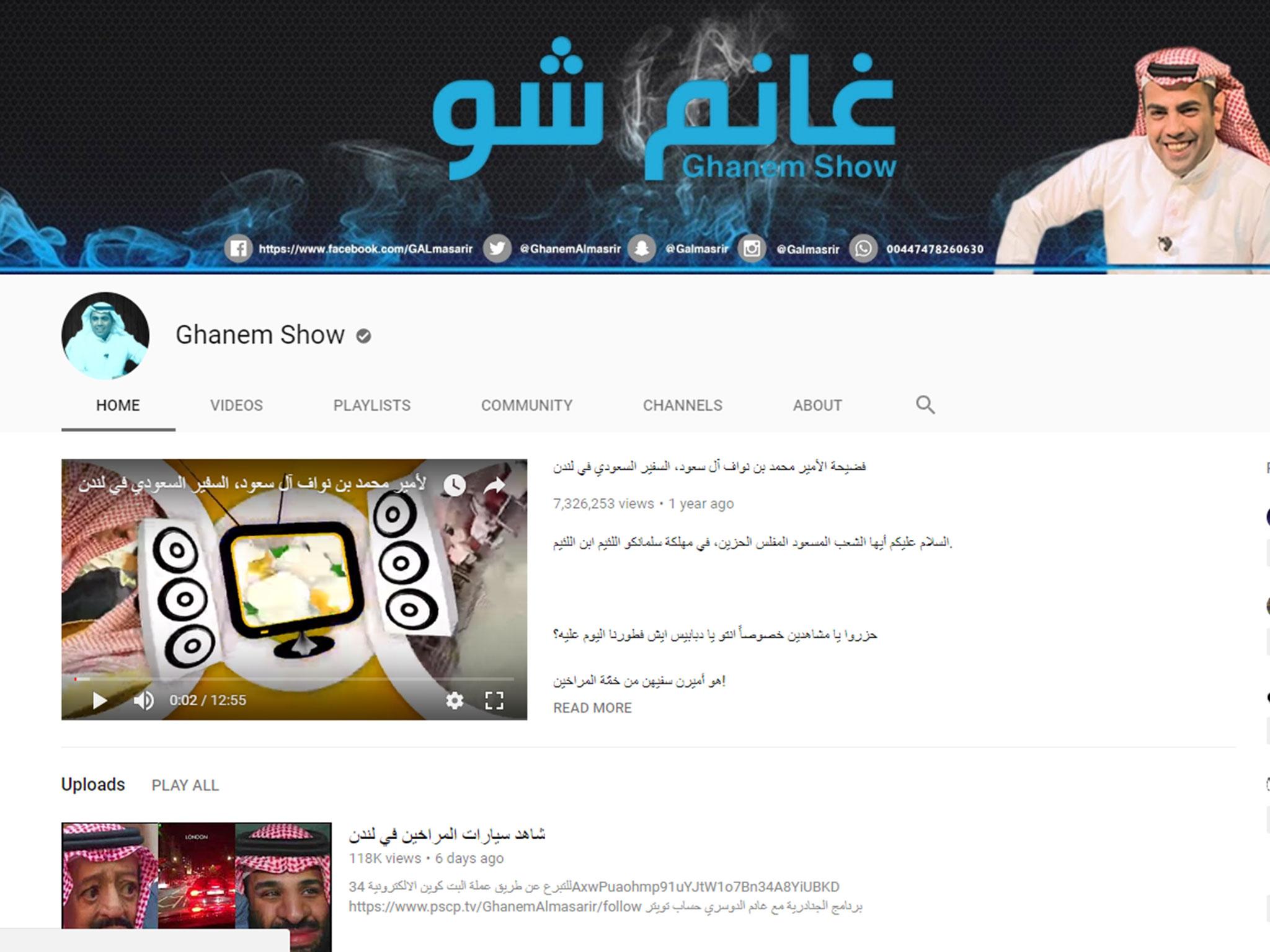Human rights activist launches legal claim against Saudi Arabia for ‘hacking phone’ in UK
Ghanem al-Dosari was previously attacked by two Saudi men shouting about the royal family in London
A Saudi Arabian human rights activist who sought refuge in the UK has launched a legal claim accusing his country's government of hacking his phones.
Ghanem al-Dosari believes two of his iPhones were corrupted with spyware that enabled agents to extract communications data and access microphones and cameras.
A letter was delivered to the Saudi Arabian embassy in London launching a legal claim against the country's government. It alleges that he was harassed and had his private information stolen.
In June 2018, Mr al-Dosari clicked on links from text messages that appeared to have come from a reputable courier company and news service, it said.
He noticed that the two phones he used suddenly stopped software updates and began. losing battery life quickly. An analyst later found that malware had been downloaded, it said.
Analysis by the University of Toronto’s Citizen Lab found that the malicious texts had led to internet domains associated with Pegasus spyware, which is owned by the Israeli surveillance company NSO Group.
Mr al-Dosari’s lawyers said that analysts “concluded with a high degree of confidence that the state responsible was Saudi Arabia”.
They said the operator found to have sent the spyware to Mr al-Dosari also targeted two other Saudi dissidents, an Amnesty International researcher working on Saudi issues and individuals within the middle eastern country itself.
Mr al-Dosari previously told The Independent how he was attacked by Saudi men shouting abuse outside Harrods in August last year.
He has received death threats and abuse over his satirical YouTube videos ridiculing the Saudi royals, and was granted asylum after seeking refuge in the UK in 2003.
Mr al-Dosari believes he was spied on because of his criticism and because the Saudi government “does not like to be laughed at”.
“I left Saudi Arabia to get away from its oppressive government, however, I believe their extensive reach has followed me here,” he said. “I am bringing this case to get justice in this country, because no one in Saudi Arabia would be able to make a legal case against the royal family.
“Everyone should have a right to their privacy and be able to live their lives freely, without interference or intimidation. It is not only my privacy that has been invaded, it is also the privacy of my family and friends and those that come to me for help to tell their stories from inside the country.”

Mr al-Dosari’s YouTube videos have been viewed more than 200 million times on his channel, the Ghanem Show. They have sparked numerous hostile posts and blogs.
Many of his videos target the Saudi government and he has nicknamed Crown Prince Mohammad bin Salman “the tubby teddy bear”.
Mr al-Dosari joined protests outside the country’s London embassy in the wake of the murder of journalist Jamal Khashoggi in October and accused the Saudi government of involvement.
Canadian-based dissident Omar Abdulaziz, a friend of Mr al-Dosari’s who had been in contact with Mr Khashoggi, also claimed his phone was also hacked using Pegasus spyware and is suing NSO in Israel.
WhatsApp recently urged users to update its app after discovering a vulnerability allowing NSO spyware to infect devices.
Lawyers representing Mr al-Dosari are seeking damages, costs, a public apology from Saudi Arabia, disclosure of who acted on its behalf and the return of allegedly stolen data.
Solicitor Astrid Perry said: “The widespread abuse of these invasive technologies creates a climate of fear and repression and ultimately leads to a loss of freedom for us all. My client believes he was targeted for the simple reason that he seeks to hold those in power to account. He should be free to live his life in the UK without interference and intimidation from Saudi Arabia.”

Martyn Day, a senior partner at Leigh Day added: “It is important that we use the laws that have been put in place to protect people in Britain from harassment and invasion of their privacy to defend against foreign regimes who seek to use technology unlawfully.”
NSA Group declined to comment on the case, but has previously said that its technology is licensed to authorised government intelligence and law enforcement agencies to investigate terrorists and criminals.
The Saudi Arabian embassy in London has not responded to The Independent’s request for comment.
Bookmark popover
Removed from bookmarks